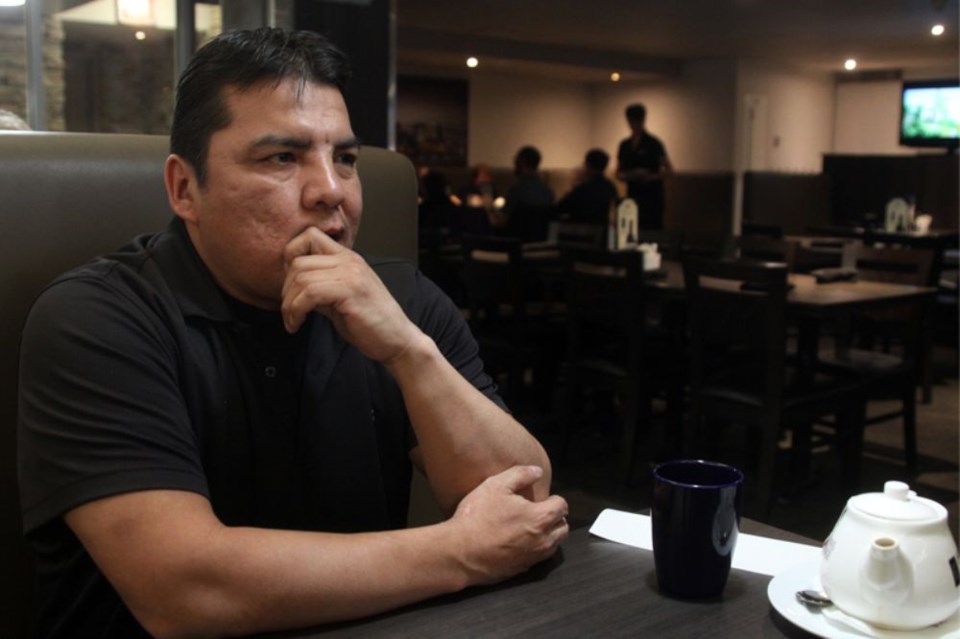First Nations leaders in Treaty 3 claim provincial law enforcement agents are infringing on their members’ harvesting rights.
Four Anishinaabe men are scheduled to appear in courts across Northwestern Ontario this spring on charges First Nations say present a pattern of poor education on provincial jurisdiction and treaty rights.
A moose was quartered in Nigigoonsimikinkaaning First Nation Chief Will Windigo’s truck last fall when the Ontario Provincial Police pulled him over on Highway 502 between Fort Frances and Dryden. Windigo claims the officer treated his hunting party aggressively but it was the ignorance of treaty relationships and rights that most concerned the chief.
Windigo said the officer was unaware Treaty 3 members have hunting rights within the entire 142,000-square-kilometre territory. Although Windigo was able to produce his treaty card, he doesn’t have a Possession Acquisition License on principle.
He recalls his exertion of rights as having been ill-received.
“I basically told the officer, ‘I understand what your position is. You have a job to do but you guys need to be more educated as to knowing the rights holders you’re dealing with. You guys have to know about our treaties,’ and he really wasn’t willing to listen to that,” Windigo said.
No charges were laid but Windigo followed up with the OPP in Fort Frances, 40 kilometres west of his community. He urged police leadership to assist their officers in understanding the nuances of provincial laws and Indigenous people.
“I don’t want to have a bad relationship with the OPP. I think there’s work we can do together,” he said.
“It’s just recently – maybe the last 10 years -- they seem to be trying to water down our treaty rights. I think situations like this need to happen in order for us to get them recognized. The province doesn’t really have the jurisdiction – I don’t think they do, anyway – to enforce and impose those laws.”
When Windigo was elected chief, one of the first files to cross his desk was an OPP case against a Nigigoonsimikinkaaning man, charged with not wearing a lifejacket or presenting a Pleasure Craft License. Windigo committed band funding to a legal defence but both charges were dropped.
“It wasn’t tried in court. I was hoping it would be. I think that’s where it needs to happen if they don’t want to sit down with us and understand. To me, that’s just a waste of money when we can sit here and hash it out.”
That same man is now among two Treaty 3 members and a Robinson-Superior Treaty man who were charged while hunting in Treaty 3 in January 2015. Another Treaty 3 member is facing 19 trapping charges, all laid in an April 2014 instance.
Grand Council Treaty 3 trapping director Dave Lindsay said those cases not only constitute a pattern that challenges treaty rights but pointed out many can’t afford legal defence to uphold their rights.
“When someone is charged with an offence under the Fish and Wildlife Act, those charges don’t qualify under Ontario Legal Aid for assistance to provide legal representation,” Lindsay said.
“There needs to be assistance available when someone is charged with legislation that the Ontario Ministry of Natural Resources and Forestry monitors and enforces.”
Treaty 3 Grand Chief Warren White’s frustration over the issue is growing to the point where, if asked, he’s ready to rescind his seat on the Aboriginal Advisory Group that meets with the Attorney General.
Since the Chiefs of Ontario signed an historic political accord with Premier Kathleen Wynne in August, White has been advancing Memoranda of Understanding with the Ministry of Aboriginal Affairs, the Ministry of Northern Development and Mines and the Ministry of Natural Resources and Forestry.
He insisted provincial officers have to act in good faith on a personal level if agreements at the political level are to succeed.
“Ontario signed a political accord. That’s on very shaky grounds with Treaty 3 right now,” White said.
“How does that look when I’m trying to build these positive relationships under the Political Accord and my people are still being charged or harassed for harvesting rights? That doesn’t sit well with me.”
The issue will be central to Mar. 2 discussions between White and Minister of Natural Resources and Forestry, Bill Mauro.
